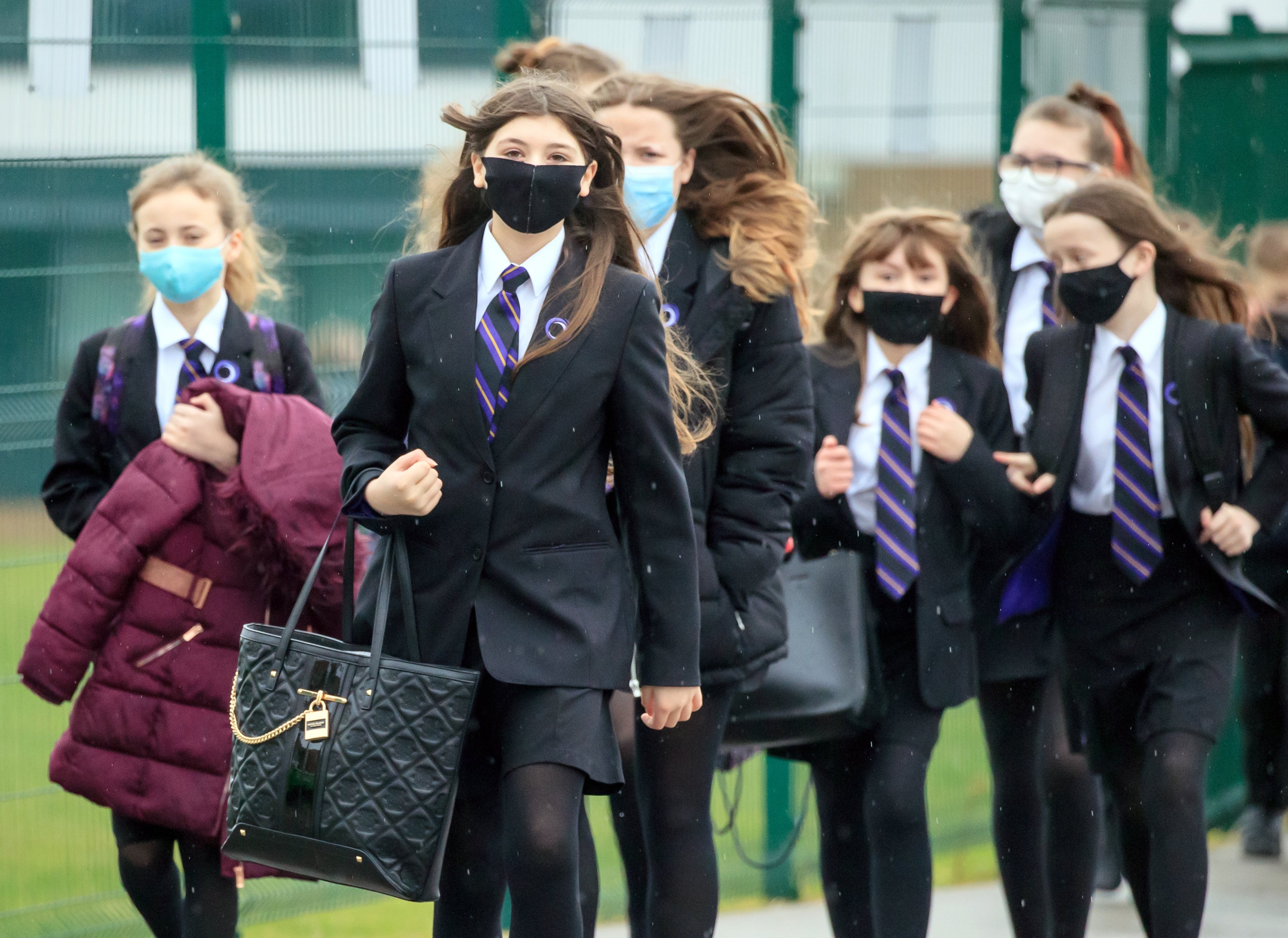Innate immune response of children ‘better at fighting Covid’, new study suggests
Researchers said the findings will be valuable in predicting the personal risk from the virus

Your support helps us to tell the story
From reproductive rights to climate change to Big Tech, The Independent is on the ground when the story is developing. Whether it's investigating the financials of Elon Musk's pro-Trump PAC or producing our latest documentary, 'The A Word', which shines a light on the American women fighting for reproductive rights, we know how important it is to parse out the facts from the messaging.
At such a critical moment in US history, we need reporters on the ground. Your donation allows us to keep sending journalists to speak to both sides of the story.
The Independent is trusted by Americans across the entire political spectrum. And unlike many other quality news outlets, we choose not to lock Americans out of our reporting and analysis with paywalls. We believe quality journalism should be available to everyone, paid for by those who can afford it.
Your support makes all the difference.The innate immune response of children is better at fighting coronavirus compared to that of adults, new research suggests.
The study, which compared Covid infection in adults and children across multiple organs, found a stronger innate immune response in the airways of children, characterised by the rapid deployment of proteins called interferons that alert killer white blood cells to restrict viral replication early on.
According to the study, a less rapid immune response in adults meant the virus was better able to invade other parts of the body where the infection was harder to control.
Interferons are proteins with strong anti-viral activity and their production will typically lead to the activation of B and T cells, which kill infected cells and prevent the pathogen from spreading further.
For this study, researchers at University College London (UCL) and affiliated hospitals collected and processed matched airway and blood samples from 19 paediatric and 18 adult Covid patients with symptoms ranging from asymptomatic to severe, as well as control samples from 41 healthy children and adults.
Analysis showed that interferons were more strongly expressed in healthy children compared to adults, with a more rapid immune response to infection in children’s airways.
Researchers part of the Human Cell Atlas suggested the findings will be valuable in predicting the personal risk from the virus by using a nasal swab to measure the immune response in newly infected adults.
They found children have an innate immune system that is better able to recognise dangerous viruses or bacteria automatically, triggering cells that can adapt to the threat.
Researchers say adults also have an innate response but it is more active in children. The immune system of adults is more adaptive, containing a huge repertoire of memory type cells that have been trained through past exposure to respond to a particular threat.
Dr Masahiro Yoshida, the first author of the study from University College London, said: “Because Sars-CoV-2 is a new virus, it isn’t something that the adaptive immune system of adults has learned to respond to.
“The innate immune system of children is more flexible and better able to respond to new threats.
“What we see at a molecular level are high levels of interferons and a very quick immune response in children that helps to explain why they are less severely affected by Covid-19 than adults.”
The study also explains how the immune system of adults, with its high numbers of killer immune cells such as B and T cells, can work against the body once the virus has spread to other parts of a patient.
Dr Marko Nikolic, a senior author of the study from University College London, MRC Intermediate Fellow and honorary consultant in Respiratory Medicine, said: “Once the virus has spread to several areas of the body, organ damage can be caused by the immune system trying and failing to control the infection.
Dr Kerstin Meyer, a senior author of the study from the Wellcome Sanger Institute, said: “To put it simply, the innate immune response is better at fighting Covid-19 and children have stronger innate immunity, but immunity is also a complex ballet involving many types of cells.
“The timing and the types of cells that are triggered will influence how an infection develops, and this will vary between individuals for all sorts of reasons in addition to age.
“Some of the differences we observe between children and adults may help us to think about how we gauge personal risk for adults as a way of mitigating serious illness and death.”
The research from the Wellcome Sanger Institute, University College London and their collaborators, is published in Nature.
Join our commenting forum
Join thought-provoking conversations, follow other Independent readers and see their replies
Comments